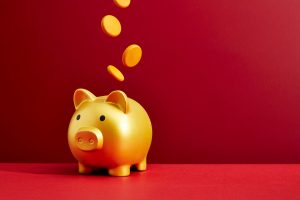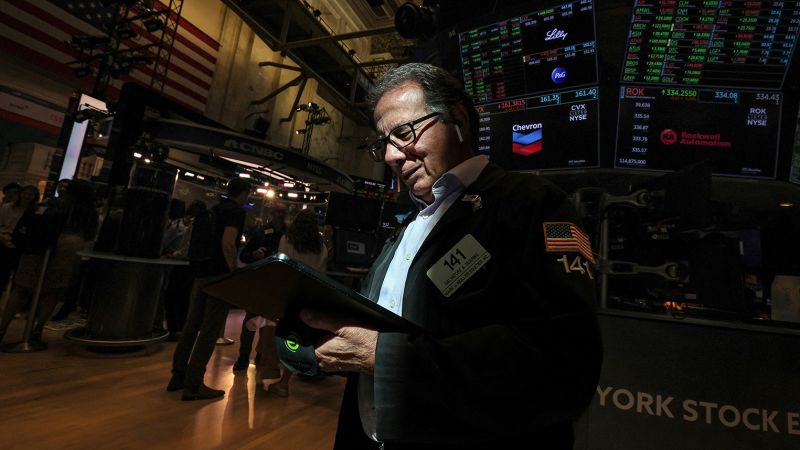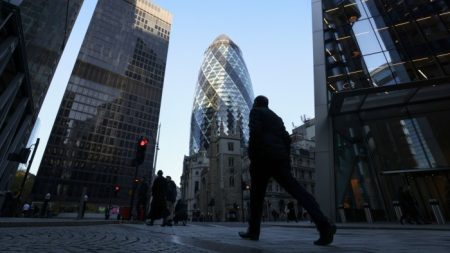A version of this story first appeared in CNN Business’ Before the Bell newsletter. Not a subscriber? You can sign up right here. You can listen to an audio version of the newsletter by clicking the same link.
Cyclical stocks that tend to rise and fall with the economy are rallying, the latest sign that investors are becoming more optimistic about the possibility of a “soft landing,” i.e. no recession.
The Dow Jones Industrial Average index has gained 3.2% this month, outperforming the S&P 500 and Nasdaq Composite. The blue-chip index on Wednesday notched its longest daily streak of gains since 1987 and its highest level since February 2022.
The Dow’s gains suggest that investors are starting to buy more economically sensitive stocks as recent data show inflation slowing. That, in turn, indicates they’re becoming increasingly optimistic that the economy could avoid a recession.
Conventional Wall Street wisdom says gains in the blue-chip index tend to precede rallies across the broader market. The rally also offers further support that investors aren’t just buying Big Tech stocks anymore.
“That’s a good thing that you’re seeing breadth, because that’s the one thing this market has lacked this whole time,” said Adam Phillips, managing director of portfolio strategy at EP Wealth Advisors.
The Dow Jones Transport Average Index, an index of 20 stocks including railroad, trucker, airline and freight companies, has gained 24% this year. That’s outperformed the blue-chip index, up 7%, and the broad-based S&P 500 index, which has risen 19%.
That’s a good sign for the economy, since it indicates that consumers are continuing to spend on both goods and travel even as the Federal Reserve tightens the economy.
Shares of railroad Union Pacific Corporation have gained about 16% this month, truck rental company Ryder System rose 16% and shipper Old Dominion Freight Line gained 14%.
Still, investors aren’t out of the woods just yet. The Fed on Wednesday raised interest rates by a quarter point and didn’t take the possibility of another rate hike this year off the table.
Some market indicators also suggest that a recession could still be on the horizon. The New York Federal Reserve’s recession probability model, which tracks the spread of 3-month and 10-year Treasury yields, shows a 67% of the US economy entering a recession by June 2024.
The Federal Reserve on Wednesday raised its benchmark lending rate by a quarter point, pushing interest rates to their highest level in 22 years, reports my colleague Bryan Mena.
That marks the central bank’s 11th hike since it began its aggressive campaign against inflation last year. The Fed last month paused raising rates to assess the state of the economy after three regional banks collapsed earlier in the year.
Fed officials expect one more rate hike this year, according to their latest set of projections.
“In determining the extent of additional policy firming that may be appropriate to return inflation to 2% over time, the Committee will take into account the cumulative tightening of monetary policy, the lags with which monetary policy affects economic activity and inflation, and economic and financial developments,” the Fed’s statement said.
Read more here.
Gas prices are soaring, reports my colleague Matt Egan.
The US average price for a gallon of regular gasoline jumped to an eight-month high of $3.71 on Thursday, according to the American Automobile Association. Wednesday’s surge marked the biggest one-day increase since last June.
“We’re seeing a sudden jolt,” said Patrick De Haan, head of petroleum analysis at GasBuddy.
Some of the factors pushing prices up include supply cuts by OPEC and Russia, extreme heat that has sidelined oil refineries and optimism about the health of the global economy.
Gas prices remain below where they were last summer, when Russia’s invasion of Ukraine sent energy prices skyrocketing.
But a spike in energy prices could spell trouble for both cash-strapped consumers and the Federal Reserve, as it fights to bring prices down.
Read more here.
Read the full article here















